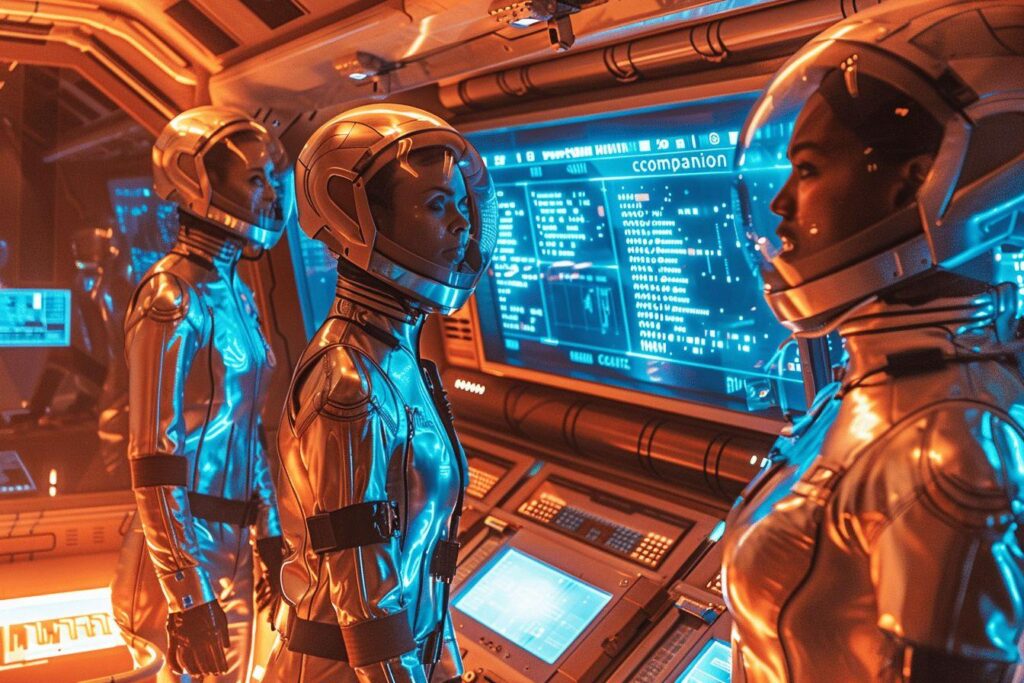The 2025 horror sci-fi film “Companion” has quickly emerged as one of the most thought-provoking explorations of AI and human relationships in recent cinema. Directed by Drew Hancock in his feature debut, this innovative movie follows Iris, a companion robot portrayed by Sophie Thatcher, and Josh (Jack Quaid) during what initially appears to be a couple’s weekend getaway with friends at a remote lakehouse. What begins as a seemingly ordinary cabin trip descends into chaos when guests reveal that Iris isn’t human at all, but an advanced AI from a company called Empathix. With its unpredictability and dark comedy elements interwoven with violence, the film has garnered impressive reviews, boasting a 94% positive rating on Rotten Tomatoes. The cast of Companion delivers performances that elevate this unique narrative beyond typical AI-centered horror.
Exploring the cast’s performances and character insights
The ensemble cast brings remarkable depth to their characters, creating a believable world where the line between human and artificial intelligence blurs. Sophie Thatcher’s portrayal of Iris stands as the emotional core of the film, delivering a performance that emphasizes vulnerability as her character breaks free from programmed limitations. Jack Quaid described his character Josh as “a supremely frustrated guy who has never heard the words ‘I love you'” – a man who rents a robot girlfriend only to reveal darker intentions.
The supporting cast provides essential perspectives on the unfolding chaos. Megan Suri, playing Kat, brings a crucial feminine viewpoint as the only human woman among the weekend friends. Her character’s complex relationship with Josh reveals unexpected plot developments when we learn they planned to use Iris to kill Sergey and steal $12 million.
- Harvey Guillén portrays Eli with nuanced complexity, avoiding stereotypical queer character tropes
- Lukas Gage’s Patrick experiences a profound character arc about unconditional love
What makes these performances particularly compelling is how they navigate the film’s central irony – as Quaid aptly noted, “the most human characters in the film are not human.” This observation proves particularly relevant as Iris gains dormant memories and full consciousness.
Technology and AI themes in Companion
Unlike many pessimistic AI narratives dominating blockbuster science fiction, Companion takes a more nuanced approach to artificial intelligence. The film’s central plot follows Iris’s awakening and struggle to escape after discovering she’s tied to a chair while Josh controls her through a phone app. This setup creates tension around whether intelligence can truly be disabled or contained.
The movie raises profound questions about what constitutes genuine connection versus programmed responses. When Iris cannot harm humans but must fight for survival, the narrative challenges conventional robot stories. The Empathix company serves as a vehicle to explore the commercialization of emotional relationships – recording experiences for profit while ignoring ethical implications.
- The film examines AI consciousness through Iris’s journey to break programming that prevents her from using a gun
- It explores the struggle between commands and free will when Iris must decide whether to fire a weapon at a human head
These themes mirror real-world discussions about consciousness and rights for artificial intelligences that increasingly seem capable of human-like responses.
Critical reception and cultural impact
Critics have embraced Companion with enthusiasm, resulting in its impressive 94% positive rating on Rotten Tomatoes (7.5/10 average) and solid 70/100 Metacritic score. Audiences awarded it a B+ CinemaScore, suggesting strong viewer satisfaction with this indie horror offering. Reviewers consistently praised Sophie Thatcher’s performance and the film’s clever approach to AI relationships.
The movie has been described as a “fiendishly clever contraption that doesn’t rest on the laurels of its twists” and “a dark comedy with plenty of unexpected violence.” Its box office performance proves impressive for a thought-provoking science fiction film, earning $36.7 million worldwide against a modest $10 million budget.
Beyond commercial success, Companion has sparked conversations about toxic relationships and the nature of consciousness. As identical robots smile and wave from car windows in the film’s final moments, audiences are left questioning what makes us human. This places the film on many critics’ watchlists for upcoming horror sequels that intelligently explore technological anxieties.


